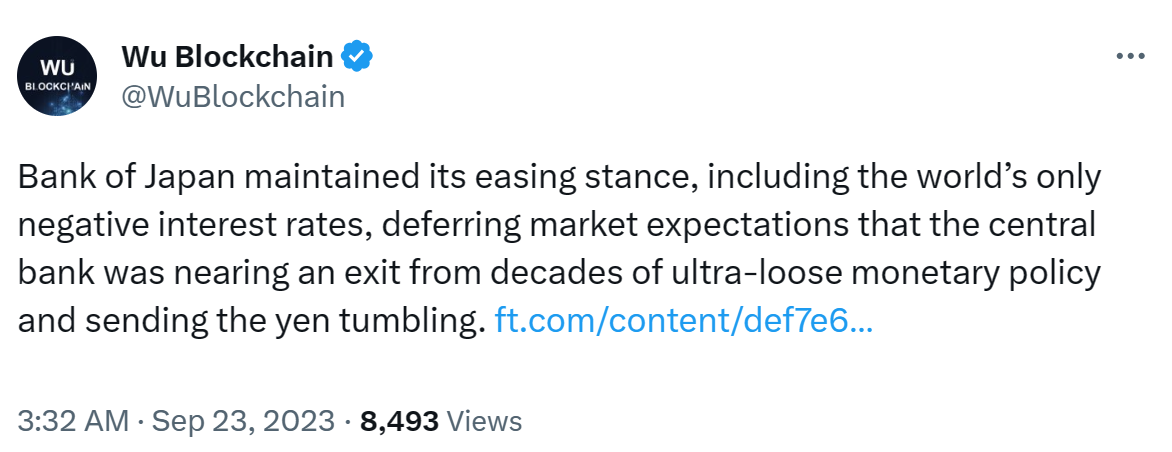Bank Of Japan Faces Inflation Challenge
Bank of Japan (BoJ) Governor Kazuo Ueda has expressed reservations about the central bank’s ability to attain its 2% inflation target, defying market expectations of a potential shift away from decades of ultra-loose monetary policy. This revelation has sent the yen into a downward spiral. Ueda’s statements came after the BoJ’s announcement that it would persist with its easing stance, including maintaining the world’s only negative interest rates, following a two-day meeting of the monetary policy committee.

Japan’s Inflation Challenge
During a press conference, Ueda articulated, “We have yet to foresee inflation stably and sustainably achieve our target, and that is why we have to patiently maintain ultra-loose monetary policy.” His remarks underscored a cautious approach to the prospect of policy normalization, signaling that any shift in the BoJ’s stance would only occur once the inflation target was unequivocally met.
The BoJ’s decision to maintain the status quo had an immediate impact, leading to a sell-off in the yen, which depreciated to ¥148 per dollar within minutes. While the decision itself was largely expected, Ueda’s commentary on inflation took center stage, particularly as Japan contends with persistent inflation surpassing the 2% target for 17 consecutive months, according to official data released earlier.
Market participants had been closely monitoring the divergence in interest rate policies between the hawkish US Federal Reserve and the still-dovish BoJ. The Fed recently upheld its benchmark rate at 5.25-5.5%, signaling a commitment to elevated borrowing costs. In contrast, the BoJ retained its short-term interest rates at minus 0.1% and adhered to its yield curve control program, aimed at maintaining 10-year Japanese government bond yields close to zero.
High Yields and Weak Yen
The BoJ’s decision not to modify its yield curve control program raised eyebrows, especially as the 10-year JGB yield reached 0.72%, its highest level since January 2014. Concerns are mounting that Japanese authorities may intervene if the yen continues to weaken significantly, particularly if it breaches the ¥150 threshold. Prime Minister Fumio Kishida reaffirmed the government’s commitment to monitoring currency movements, emphasizing its readiness to take action to stabilize financial markets.
Read More: Ethereum Devs Prep For Devnet-9
The BoJ faces a complex road ahead, particularly in light of August’s inflation data. “Core-core” inflation, which excludes energy and food prices, stood at 4.3% in August, mirroring July’s figures. Stefan Angrick, senior economist at Moody’s Analytics, pointed out the ongoing challenges for the BoJ, given the anticipated gradual easing of inflation against the backdrop of persistently high producer prices. Navigating Japan’s economic landscape remains a formidable task for the central bank.



